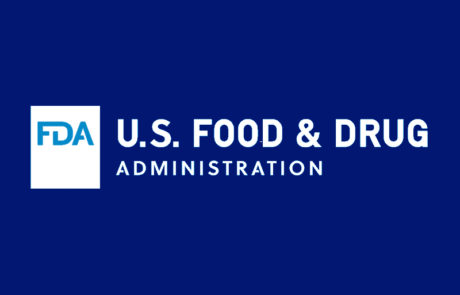
S5(R3) Detection of Reproductive and Developmental Toxicity for Human Pharmaceuticals
By The FDA
The FDA has recently released new guidance outlining the necessary information required to assess nonclinical developmental and reproductive toxicity in human trials and for marketing authorisation. The guidance describes potential strategies and study designs to supplement available data to identify, assess, and convey risk.

Nonclinical Testing of Individualized Antisense Oligonucleotide Drug Products for Severely Debilitating or Life-Threatening Diseases Guidance for Sponsor-Investigators
By The FDA
This draft guidance aims to describe the nonclinical information that FDA recommends to support an investigational new drug application for an antisense oligonucleotide being developed to treat a severely debilitating or life-threatening disease caused by a unique genetic variant where only a small number of individuals are prospectively identified.

ASCO: AstraZeneca details Calquence’s heart safety edge over Imbruvica as both brace for BeiGene’s rival Brukinsa
By Angus Liu
AstraZeneca announce that their BTK inhibitor Calquence has a significantly improved safety profile to that of the market leader, AbbVie and Johnson & Johnson’s Imbruvica. Calquence boasts a 6% decrease in patients experiencing atrial fibrillation.

CDK4/6 inhibitors in breast cancer: differences in toxicity profiles and impact on agent choice. A systematic review and meta-analysis
By Onesti et al
There are currently three CDK4/6 inhibitor drugs on the market, each with similar efficacies and indication. This paper interestingly reviews the safety profiles of palbociclib, ribociclib, and abemaciclib through a systematic review and meta-analysis to determine a superior drug.

Initial safety trial results find increased risk of serious heart-related problems and cancer with arthritis and ulcerative colitis medicine Xeljanz, Xeljanz XR (tofacitinib)
By the FDA
The FDA recently published preliminary results from an the arthritis and ulcerative colitis medicine trial, Xeljanz. The data found significant risk of serious heart-related problems and cancer compared to the alternative treatment option, tumor necrosis inhibitors. Results are still pending for other potential risks including blood clots in the lungs and death. Though this highlights the need for safety trials.

Bluebird bio gets FDA green light to restart sickle cell gene therapy trials after rocky few months
By Amira Al Idrus
Bluebird bio’s sickle cell gene therapy was temporarily halted earlier this year due to two patients developing blood cancer, one with acute myeloid leukemia and the other with myelodysplastic syndrome. The halt has now been lifted as evidence suggests that the vector thought to be responsible, known as LentiGlobin or bb1111 was very unlikely to be the cause of the cancer.

Toxicity of gold nanoparticles (AuNPs): A review
By Sani et al
Gold nanoparticles are gaining traction in the field due to their electrical, mechanical, thermal, chemical and optical properties. Literature reviews suggest they cause oxidative damage to tissues and cell lines used in vivo and in vitro respectively with the liver, spleen and kidney most affected. However the data is controversial as some studies have shown that AuNPs are not toxic.

Larimar Therapeutics slapped with FDA clinical hold, forced to halt $95M cash raise
By Ben Adams
Larimar Therapeutics’ leading asset, CTI-1601, a recombinant fusion protein intended to deliver human frataxin into the mitochondria of patients with Friedreich’s ataxia, was halted as a number of deaths occurred at the highest dose levels in an ongoing 180-day nonhuman primate toxicology study.

S11 Nonclinical Safety Testing In Support of Development of Pediatric Pharmaceuticals
By The FDA
The FDA guidance for nonclinical safety studies defines the current recommendations to reduce the likelihood that substantial differences exist among regions. It facilitates the timely conduct of paediatric clinical trials and reduce the use of animals in accordance with the 3R principles.

FDA restricts use of Intercept drug due to liver injury risk
By Kristin Jensen
Intercept Pharmaceuticals’ liver disease drug Ocaliva has been halted after an investigation linked it to severe injuries including liver failure in certain patients. Advice has been issued to doctors that they should not prescribe the medicine for patients with advanced cirrhosis, or permanent scarring and closer monitoring should take place.

Studies show increased risk of heart rhythm problems with seizure and mental health medicine lamotrigine (Lamictal) in patients with heart disease
By The FDA
This FDA review studies the findings of a potential increased risk of arrhythmias, in patients with heart disease who are taking the seizure and mental health medicine lamotrigine (Lamictal). Further studies aim to evaluate whether other medicines in the same drug class have similar effects on the heart.
